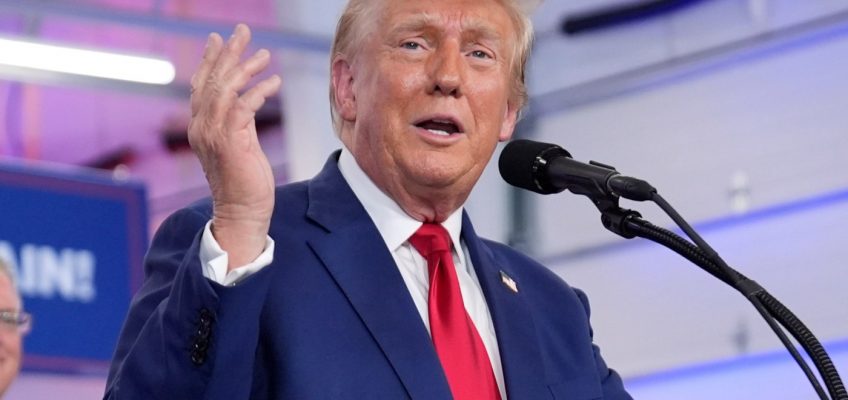CHICAGO — Minnesota Gov. Tim Walz has been across the country since he was tapped as a running mate to Vice President Kamala Harris two weeks ago, but the vice presidential hopeful is preparing for what could be one of his most important speeches yet: An address to the Democratic National Convention.
With a keynote speaking slot scheduled at Chicago’s United Center on Wednesday evening, Walz will be speaking before a huge audience, including the former presidents and presidential candidates, notable Democrats, celebrities and thousands of news media members and Democratic guests.
Ken Martin is the longest-serving chair of the Minnesota Democratic-Farmer-Labor Party, currently in the middle of his fifth consecutive term. He’s also serving as a vice chair of the DNC.
He said he wasn’t surprised, but was surely excited, when he learned that Walz had been called upon to run alongside Harris.
“I was just ecstatic. Governor Walz, I think, has been one of the most successful governors in the country in terms of what he’s been able to do to help improve people’s lives — the legislation he passed during the past couple legislative sessions,” Martin said. “It’s an important value for our party in Minnesota, but also certainly for the governor, that every person should have an opportunity, not just to survive, but to thrive and to get ahead.”
Although he doesn’t know exactly what Walz’s speech will consist of, Martin offered some insight as to what he expects to hear.
“I haven’t been privy to his speech at this point, so I don’t know what he’s going to say, but what you’ll probably hear is some broad themes focused on what he was able to accomplish, both in Congress and in his time as governor,” Martin said. “And again, a focus on not letting politics get in the way of good governance.”
Martin touted Walz’s ability to pass progressive policy through a one-seat majority in the state Senate (though the June resignation of Sen. Kelly Morrison, DFL-Deephaven, who is making a run for Congress, leaves the chamber evenly balanced until a November special election).
“I don’t need to recount all the different pieces of legislation … but the point being, (Walz) was really focused on helping working people and helping families get ahead instead of just getting by, and I think that’s really key,” Martin said.
More on Walz’s biography and a little bit more about who he is as a person — not just a governor — is something else Martin said those watching the DNC are likely to hear.
“He was a teacher for 20-plus years, he is a veteran, a hunter, a gun owner. He served 12 years in Congress in a tough district in southern Minnesota, he’s a small town guy, as he likes to say,” Martin said. “And probably most importantly, he’s genuine and authentic, right? … He’s more comfortable in a baseball cap and a T-shirt than a suit. He’s more comfortable in a deer stand or a fishing boat. He’s just a really down-to-earth guy.”
Martin believes that Walz’s Midwestern personality “adds a lot” to the Democratic ticket.
Delegate and Minneapolis lawyer Charlie Nauen shared many of Martin’s sentiments.
“(Walz) always speaks from his heart, he’s a genuine guy,” he said. “He leads the state with his heart and with compassion for people.”
But what Nauen is really looking forward to is an explanation about how Walz’s progressive agenda for Minnesota could be applied across the rest of the United States.
“I want to hear (Walz) talk about his vision for the United States, and how his experience in Congress for 12 years and his experience as governor for six-plus years is going to translate to helping people nationwide,” Nauen explained. “I got goosebumps just thinking about it.”
The nation’s youngest Democratic delegate — 17-year-old Isaac Winkler, of Golden Valley — said he’s looking for Walz to emphasize bringing Americans together.
“I’m hoping to hear a message of unity. I think that America needs a candidate right now that can bring people together. Regardless of anyone’s individual preference, Tim Walz and Kamala Harris can say they’ve never incited violence to protect their office and power,” Winkler said. “That’s the most important thing. They’re both very good people and they’re here for all Americans.”
It’s a message that Winkler believes Walz has been effectively communicating.
“He’s been very good at trying to reach a broad band of voters,” said Winkler, whose father is former state Rep. Ryan Winkler.
Related Articles
Trump campaigns to ‘make America safe again’ as Democratic convention zeroes in on his felony record
On track to be first trans member, Sarah McBride has hope for Congress
State lawmakers eye promise, pitfalls of AI ahead of November elections
Obama made his DNC debut 20 years ago. He’s returning to make the case for Kamala Harris
Democrats turn toward Harris at party’s convention as Obamas, Emhoff take center stage




